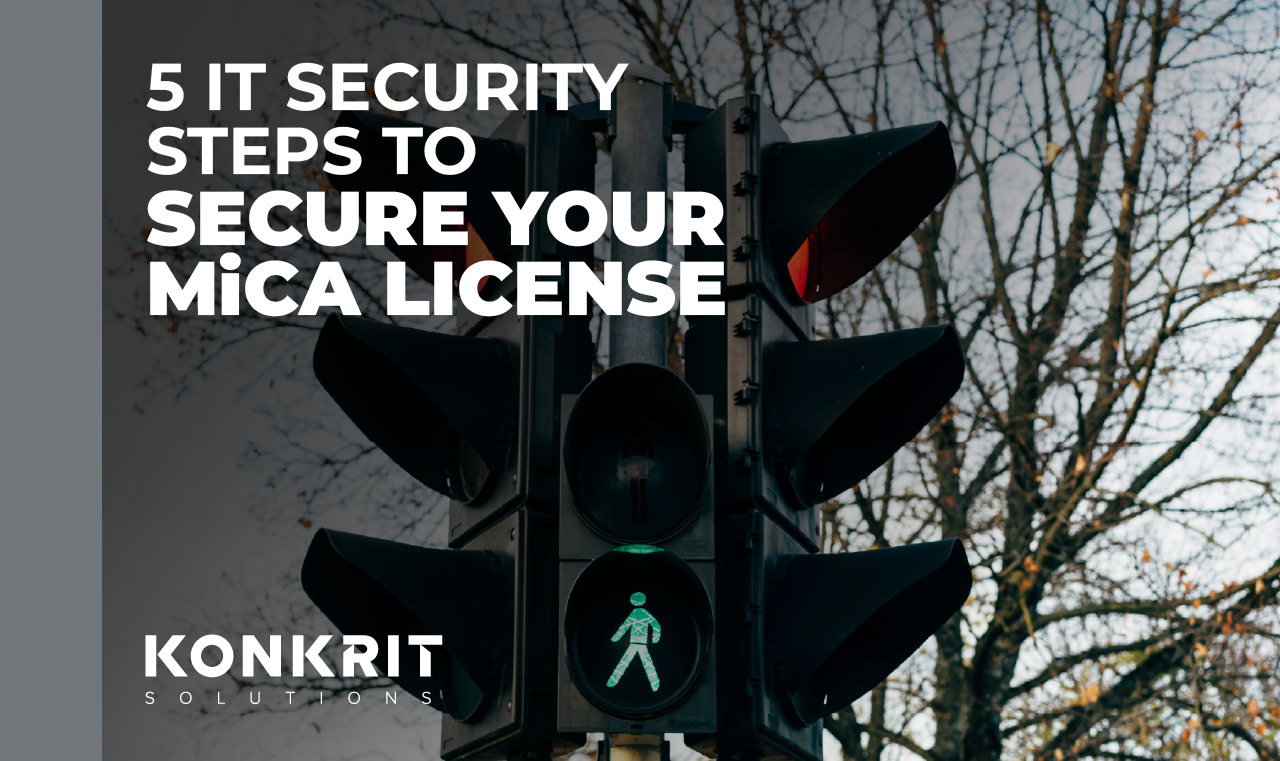With the Markets in Crypto-Assets Regulation (MiCA) now in force, the race is on for crypto firms to secure licensing across the EU. While many focus on legal structures and whitepapers, one critical area continues to block otherwise promising applications: IT and cybersecurity readiness.
MiCA licensing is not a checkbox exercise. Regulators now expect clear evidence of operational maturity, particularly regarding the integrity, availability, and resilience of digital infrastructure. If IT security is still treated as a minor technical issue, the application is already at serious risk of rejection.
Security Under Scrutiny
Licensing authorities have begun to reject applications that rely on vague or outdated cybersecurity setups. If your systems cannot demonstrate resilience against real-world threats, your license may not be delayed—it may be denied altogether.
Expect close examination of:
- Protection of internal systems, including access controls, network segmentation, and data encryption.
- Vulnerability testing, conducted not just once, but continuously and with proper documentation.
- Incident response capabilities, supported by real evidence, not just theoretical plans.
- Third-party risk management, with oversight that goes beyond contracts and includes governance of vendors who access critical systems.
- Security of operational functions, especially custody, exchange, and token activities involving client assets or smart contracts.
The Unforgiving Nature of Operational Risk
A strong platform or token model will not compensate for weak cybersecurity. Regulators view operational risk as a fundamental concern, especially in a sector already under global scrutiny for volatility, fraud, and data breaches.
They are no longer satisfied with written policies alone. They expect:
- Evidence of actual security testing
- Clearly defined cybersecurity roles and responsibilities
- Resilience strategies supported by tested practices, not just documents
A Word to the Wise: Prepare Early
The worst position to be in is “almost ready.” If your security documentation is still being drafted during the licensing process, or if required audits have never been conducted, you are not close to readiness. You are significantly behind.
Applicants who submit incomplete or superficial documentation often receive extensive follow-up letters from regulators. These typically request clarifications, technical justifications, and corrective actions, often under strict deadlines and with little tolerance for ambiguity.
Several firms have already experienced this.
Do Not Let Security Be Your Downfall
The firms that will be licensed are not just compliant—they are resilient. They have built secure and defensible infrastructures, tested their systems under pressure, and are prepared to explain their approach with clarity and confidence.
IT security is not a secondary concern. It is the key factor in approval.
Ready to Face the Regulator? We Can Help
At Konkrit Solutions, we focus on MiCA IT compliance. We help crypto firms align their technical controls with regulatory expectations and avoid common pitfalls.
- Cybersecurity readiness assessments tailored to MiCA
- ICT system documentation and validation
- Development of resilience plans, incident response playbooks, and vendor oversight procedures
- Support in preparing for third-party audits, simulations, and regulator Q&A sessions
Don’t wait for the regulator to identify your weaknesses. 👉 Visit our Contact Page to schedule a MiCA compliance consultation and protect your license application.



